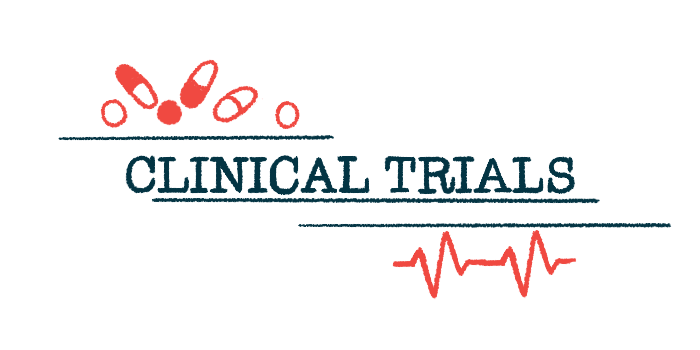LTI-03 reduced tissue scarring biomarkers in IPF patients: Trial data
Data from first group of patients finds therapy well tolerated
Written by |

LTI-03, an inhaled therapy for idiopathic pulmonary fibrosis (IPF) from Aileron Therapeutics, was able to reduce levels of several proteins known to promote tissue scarring in the first group of patients participating in a Phase 1b trial, data from the trial showed.
The trial (NCT05954988) is assessing the safety and tolerability of LTI-03 , as well as its preliminary efficacy, in 24 adults newly diagnosed with IPF who had not received treatment with antifibrotic therapies for at least two months leading up to the study. Enrolled patients were randomly assigned to receive one of two doses of LTI-03 (2.5 mg or 5 mg), or a placebo, twice daily, for 14 days.
The findings, which pertain to patients who received the low dose of the therapy, also demonstrated that LTI-03 was generally well tolerated and able to increase the levels of a biomarker of epithelial cell health.
Data from the second group of patients receiving the high dose of LTI-03 is expected later this year.
“We find it encouraging that low dose LTI-03 achieved statistical significance in three out of eight biomarkers evaluated in the trial,” Brian Windsor, PhD, Aileron’s president and CEO, said in a company press release. “This, paired with the positive trends observed in several of the other biomarkers, strengthens our belief that LTI-03 has the potential for disease stabilization or even reversal.”
Therapy aims to calm fibroblasts
In IPF, the most common type of pulmonary fibrosis, chronic injury leads to uncontrolled activation of fibroblasts, connective tissue cells that are involved in wound healing occurring in response to tissue damage. This particularly affects alveolar epithelial cells, which line the lungs’ tiny air sacs where gas exchanges occur, progressively leading to breathing difficulties.
LTI-03 is a small peptide that contains a portion of a protein called caveolin-1 (Cav1), which is involved in the regulation of fibrosis, or tissue scarring, by maintaining the balance between pathways that initiate and stop the process of wound healing. Levels of Cav1 are reduced in the lungs of IPF patients.
The therapy, formulated as a dry powder that’s administered directly to the lungs, aims to both inhibit the growth and expansion of fibroblasts, reducing the production of profibrotic proteins while protecting and preserving healthy alveolar epithelial cells. LTI-03 is thus expected to slow or reverse disease progression.
In a previous Phase 1a study (NCT04233814) conducted in healthy volunteers, the therapy was found to be well-tolerated at doses between 2.5 mg and 10 mg, with no serious side effects reported.
The now-reported data, presented by the company on a conference call, indicated that LTI-03 was able to reduce the levels of several profibrotic proteins in both basal-like cells and fibroblasts. Basal-like cells are specialized stem cells of the airway epithelium that migrate to areas of lung injury, contributing to disease progression.
Significant reductions were observed for TSLP and GAL-7 proteins in basal-like cells, and for Col-1A 1 in fibroblasts. There was also a positive trend for a reduction in other biomarkers of fibrosis in fibroblasts, including IL-11.
Moreover, treatment with LTI-03 increased the levels of solRAGE, a biomarker of alveolar epithelial cell health, and did not induce inflammation. Overall, seven of eight IPF biomarkers analyzed showed a positive trend.
“Importantly, the statistical significance observed in collagen deposition, inflammation and cellular processes underscores the potential of LTI-03 to act on both, fibroblasts as well as epithelial cells, the latter of which are believed to be causative in onset and aggravation of the disease,” said Andreas Gunther, MD, head of the Center for Interstitial and Rare Lung Diseases at Justus Liebig University in Giessen, Germany.
The data “underscore the promise of LTI-03 to combat the devastating effects of IPF and improve lung function and quality of life for those living with the disease,” Gunther said. “I look forward to further evaluating LTI-03’s potential, particularly at the higher dose, in the ongoing study.”
Aileron acquired Lung Therapeutics, LTI-03’s original developer, in October 2023.




